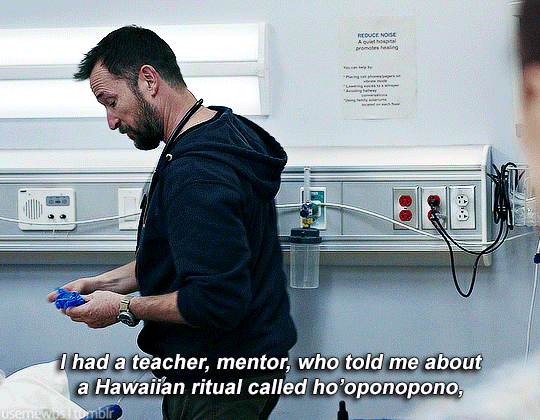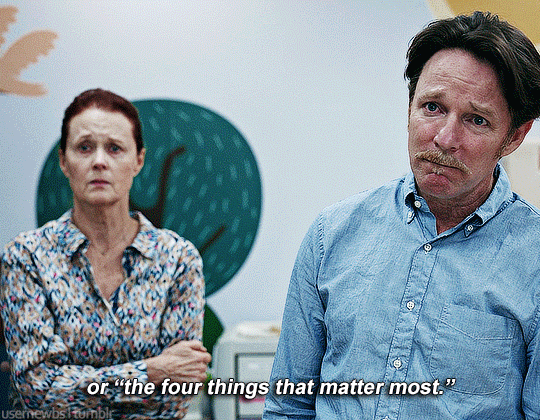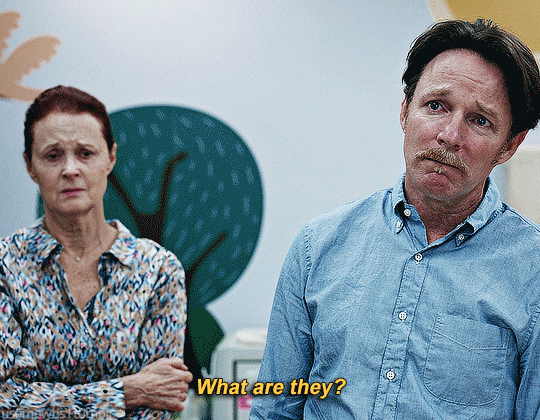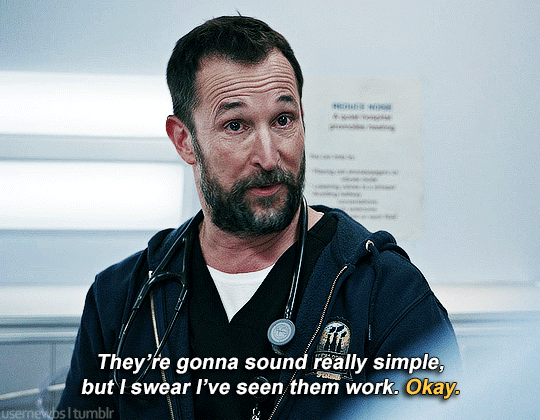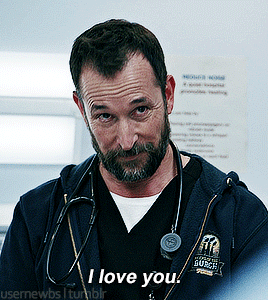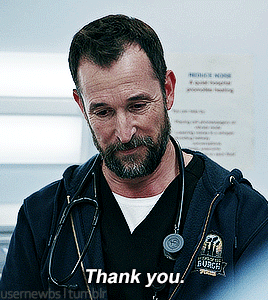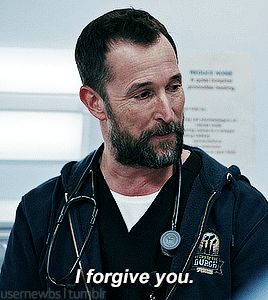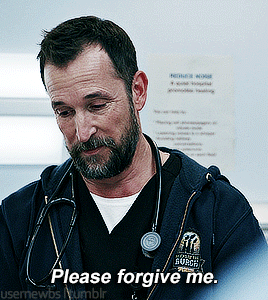Text
0 notes
Text
"Finally, Denise. My vow to ignore her because she worked in the defense industry had been derailed by the inconvenient fact that the two of us were soulmates. On our third morning she told me a story about how as a kid she and her sister shared a bedroom next to the garage, and that their drunk father regularly crashed his car hard into the garage wall, right on the other side of their beds, and that, jerked suddenly awake by the impact, they would clutch each other in the dark, laughing to the point of wetting their pants. After that we were together all the time. We did yoga together in the open-air gym and talked for hours about our many love affairs, our jobs, our families, always trying to move on from the conversation, always saying “Just one more thing.” Her smile was electric, her laugh throaty and confiding. She listened like she was on good drugs, and everything that came out of her mouth, unless it was about the military-industrial complex, was funny and fascinating. We had grown up in a world that was gone, that had many horrors but also pleasures, and it would have been impossible to process all that I saw and mourned but also hated about that world without her help." - Sarah Miller
0 notes
Text
"What do you wish you had known about love?
You can’t be complacent. Every relationship demands something proactive from you, which is why it doesn’t work to have a million true friends. You have to give someone you love a part of yourself. It’s something that is special.
We spend so much time bettering ourselves at work or in wellness, and then when it comes to relationships everybody is talking about negative things, like setting boundaries. It should be the opposite: we should be thinking about how to become more compassionate, how to understand someone more, how to listen more.
So many people have an idea of what love should be, and I think you have to put that away. Really, it’s about someone who makes you feel good — that's all it is. For some people that will be a romantic partner, for others it will be a friend or a family member. It doesn’t matter where you find it, but you do need love in your life. You have to decide that you want it, choose it, and then nurture it." - Camille Charrière
0 notes
Text
"Coon showed me around the house, which Letts, who was upstairs in his office, had decorated, before she moved in, with Danish-modern chairs, an oversized poster for the Bertolucci film “Il Conformista,” and his collection of pulpy illustrations from vintage men’s magazines. There was only one room she had made her own: a carpeted office stuffed with books. To prepare for “Mary Jane,” she had read “Strange Beauty,” Eliza Factor’s memoir of raising a son with disabilities. For “The Leftovers,” she had relied heavily on “Wave,” by Sonali Deraniyagala, a Sri Lankan economist whose family was swept away by the 2004 Indian Ocean tsunami. “It became a totem, almost like a meditation,” Coon said. “I’d read it in the morning, maybe before work, before going through hair and makeup. And then I’d have it on set with me. I could open it to almost any point, and any paragraph would be evocative in a useful way that just reminded you of the magnitude of her loss. A toenail, a dead leaf inside a cricket bag—anything can trigger it.”
She pulled out a copy of “Thirst,” a poetry collection by Mary Oliver, which she reads to clear her thoughts before scenes. She flipped to a favorite poem. “Let me / keep my mind on what matters, / which is my work, / which is mostly standing still and learning to be / astonished,” she read, then looked up. “To me, that’s what it means to do what we’re doing.”"
0 notes
Text
"A few years after “Girls” concluded, when I was in my early thirties, I was deep in the kind of heartbreak that I now know is on the required curriculum for that stage of adulthood but that seemed, in the moment, life-ending and completely unique to me. As if some higher power were sensing my need, work offered me the chance to leave. I’d escaped briefly before, but only to the equally bedevilling city of Los Angeles. This time I was headed farther afield, to explore the elfin mysteries of Wales. It was a sojourn fit for one of the Brontë heroines I had always loved (or so I thought, not realizing the difference between the moors of Yorkshire and the Celtic rain forests of Powys—a place that Charlotte, Emily, and Anne had likely never visited. Like me, the Brontës were homebodies.) In my mind, this break would provide a chance for New York and me to hook up with other people, reignite our feelings for each other, and then realize we were meant to be together all along. We all know how well that plan usually works out for couples." - Lena Dunham
0 notes
Text
"The crowd at a Phish show dances. Should I leave it at that? There are a few common styles, including the Floppy Puppet (picture someone distractedly operating a marionette) and the Invisible Surfboard (feet planted, knees bent, arms akimbo). People get loose, and they have a blast. There was a striking lack of cellphone usage, both during the show and on the festival grounds. Attendees were encouraged to keep up with the news by reading the Daily Greens, a paper produced and distributed on site. At one point, the Mondegreen app sent a notification: “Good morning! You should not be on your phone so much.” Phish’s earliest festivals were held in obscure and off-the-grid locales—between 1997 and 2003, it hosted three events in Limestone, Maine, a town of about fifteen hundred people, near the Canadian border—and the band is still intent on creating such an immersive and self-contained experience that, Anastasio said, people have no choice but to “come out the other end having shared something.”" - Amanda Petrusich
0 notes
Text
"The practitioner was what I would come to recognize as a Botox nurse out of central casting: blond, thin, with C cups as solid as mixing bowls and enormous matching platinum wedding and engagement bands. Because of whatever she’d done to her own face, she was of indeterminate age. She’d had Botox, yes, but also possibly fillers and that fat-cell-destroying, double-chin-eliminator stuff. We had different aesthetics and probably had totally different tastes in media, friendships, and men. If she had an anti-aging motto, it was “Harness All Available Technologies.” If I had one, it was “Absolutely Do Stuff, but Make Sure It’s Subtle, Because Possibly Worse Than Looking Older Is Looking Desperate to Appear Younger.” The challenge for her, I imagined, was to avoid telling me that smoothing out my forehead was a joke considering that my entire face was in rapid retreat from its glorious past. The challenge for me, if she did say something like this—though of course she would have said it more nicely—would have been not to yell back something like, “Thanks, but I don’t take beauty advice from people with barrel curls.” But what united us was more important than what divided us. We both had been young once, and we both were out there, in modern America, trying to get some respect/dick in our chosen communities." - Sarah Miller
0 notes
Text




Walton Goggins as Rick Hatchett // The White Lotus S3E7
464 notes
·
View notes
Text
As I Walked Out One Evening
W. H. Auden
As I walked out one evening, Walking down Bristol Street, The crowds upon the pavement Were fields of harvest wheat.
And down by the brimming river I heard a lover sing Under an arch of the railway: ‘Love has no ending.
‘I’ll love you, dear, I’ll love you Till China and Africa meet, And the river jumps over the mountain And the salmon sing in the street,
‘I’ll love you till the ocean Is folded and hung up to dry And the seven stars go squawking Like geese about the sky.
‘The years shall run like rabbits, For in my arms I hold The Flower of the Ages, And the first love of the world.’
But all the clocks in the city Began to whirr and chime: ‘O let not Time deceive you, You cannot conquer Time.
‘In the burrows of the Nightmare Where Justice naked is, Time watches from the shadow And coughs when you would kiss.
‘In headaches and in worry Vaguely life leaks away, And Time will have his fancy To-morrow or to-day.
‘Into many a green valley Drifts the appalling snow; Time breaks the threaded dances And the diver’s brilliant bow.
‘O plunge your hands in water, Plunge them in up to the wrist; Stare, stare in the basin And wonder what you’ve missed.
‘The glacier knocks in the cupboard, The desert sighs in the bed, And the crack in the tea-cup opens A lane to the land of the dead.
‘Where the beggars raffle the banknotes And the Giant is enchanting to Jack, And the Lily-white Boy is a Roarer, And Jill goes down on her back.
‘O look, look in the mirror, O look in your distress: Life remains a blessing Although you cannot bless.
‘O stand, stand at the window As the tears scald and start; You shall love your crooked neighbour With your crooked heart.’
It was late, late in the evening, The lovers they were gone; The clocks had ceased their chiming, And the deep river ran on.
0 notes
Text
0 notes
Text

Amber Valletta
Photographed by Annie Leibovitz, Vogue, February 1993
0 notes
Text

Title: Early Morning After a Storm at Sea Artist: Winslow Homer (American, 1836-1910) Date: between 1900 and 1903 Genre: seascape; marine art Medium: oil on canvas Dimensions: 76.8 cm (30.2 in) high x 127 cm (50 in) wide Location: Cleveland Museum of Art, Cleveland, OH, USA
113 notes
·
View notes












